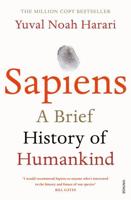Publisher's Synopsis
This series sets out the historical national and religious characteristics of the Germans, French, Italians, Spanish, Dutch and British as they impact on the integration of the respective groups within the European Union. With respect to Britain the characterisation focuses on its active and dominant Parliament as it has evolved since the sixteenth century. A primary characteristic is its early social legislation and control by a relatively broad sector of the populace. From 1688 Parliament became the central institution of government. Together with expanding national literacy, associated with religious developments, Parliament became responsible for the emergence of a broadly-based national identity involving considerable awareness of national issues. In later years the Empire became a source of pride for the population at large. This forged national identity gave the British the necessary willpower to withstand the German onslaught in the Second World War. Latterly, British involvement in the EU has not affected the strength of its nationalism, based as it is on myths which go back a millennium. Because of their robust national identity, the British will inevitably find European integration difficult to come to terms with, notwithstanding a natural inclination to lead and to be involved in supra-state decision making.









